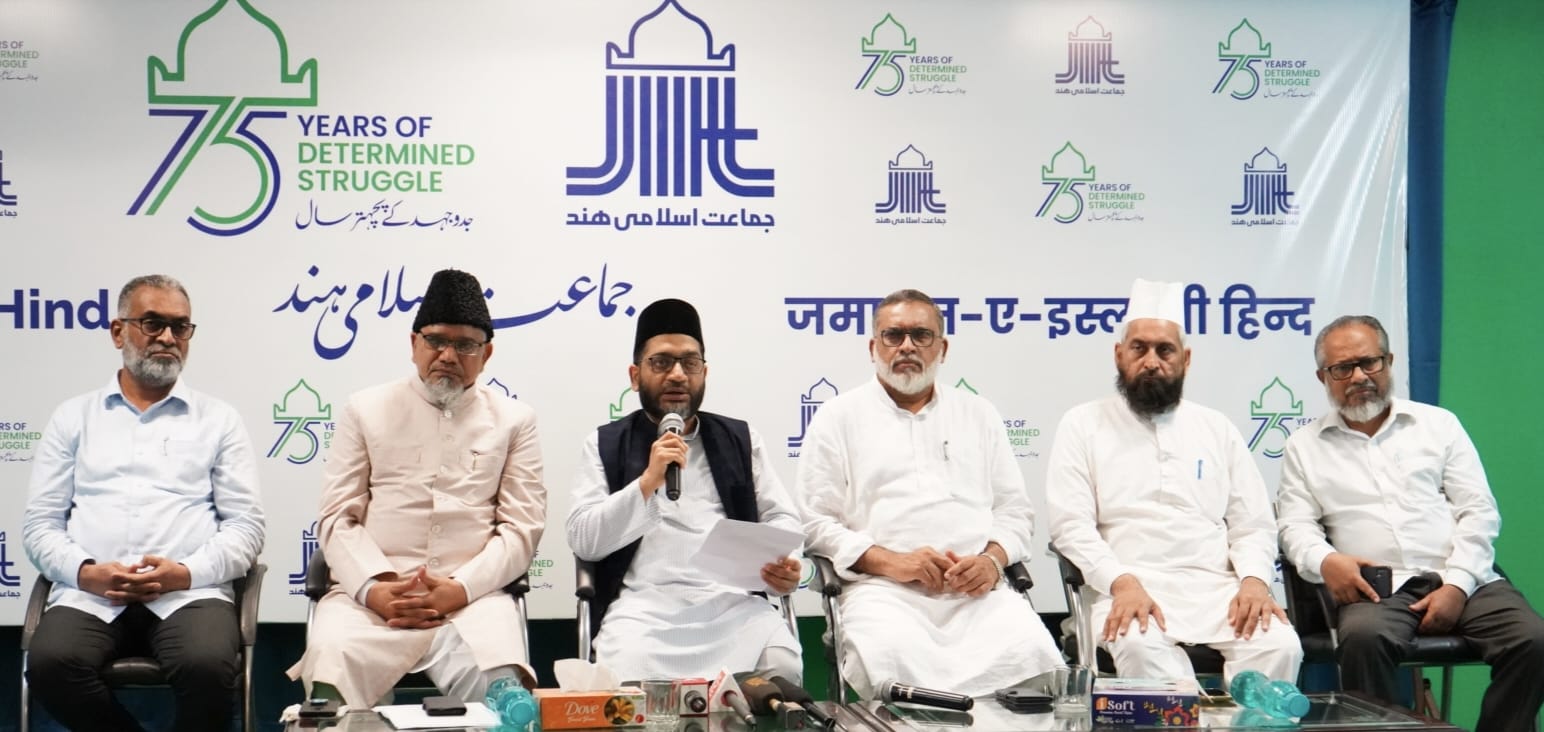Last Updated on June 15, 2023 8:44 am by INDIAN AWAAZ
Prepares 4 years plan ton Removing Misunderstanding About Islam in India

Andalib Akhter / New Delhi
India’s prominent Muslims’ body Jamaat-e-Islami Hind has unveiled a four-year (2023-2027) plan to remove misunderstanding about Islam prevailing in the country.
“The new plan is relevant because of widespread Islamophobia owing to lack of Islamic knowledge in India’s majority community. So, the idea is to bring about a positive change in the mind of the majority community by disseminating the correct message and teaching of Islam” said JIH national president Syed Sadatullah Husaini.
Talking to media persons Wednesday Husaini said that there was a large section that had a misunderstanding about Islam because of their dearth of Islamic knowledge but there were others who indulged into communalism and divisive politics not because of lack of any knowledge but as a part of their political agenda. It was this group that had become a monster and existential threat to the people in the country.
He appealed to all communities to face the challenges collectively posed by this monster, saying. Otherwise, everyone would suffer.
Spelling out the salient teachings of Islam, he said “these were not for any particular sect or community, but for the well-being of all human beings, their worldly welfare, their salvation in the Hereafter, and delivering justice and fairness to all.”
Stating that the Jamaat has given importance to improving relations among various religious communities during its new term, he said that “an atmosphere of dialogue and discussion should be created and hatred should come to an end.”
“Platforms will be created among intellectuals, religious leaders, common people, civil society, youth and women, through which different religious groups will be brought closer to each other. An atmosphere of working together will be fostered for achieving welfare and justice for all,” he elaborated.
The Jamaat chief said regular campaigns would be conducted against common vices like casteism, bigotry, violation of girls and women’s rights, foeticide, dowry, drugs and corruption etc.
Replying to a question if the Jamaat members gave share of their daughters and sisters in their parental properties, Mr. Husaini said that this was regularly enquired from the members and if anybody was found to have not given the share of their daughters and sisters, he was persuaded to comply with the law about Islamic inheritance. But even after that, if anybody was found to have refused to give the dues to his daughters and sisters, he was expelled from the Jamaat.
Stating that the reforms within the community would be given special importance and special focus would be given to issues to which reformist movements had not paid much attention, he said that “marriage should be made easy, dowry should be abolished, women should be given their share in inheritance, honesty in trade and financial matters should be implemented, cleanliness be observed and good behavior towards Muslim and non-Muslim neighbours must be practiced.”
He said the Jamaat would also focus on increasing literacy and education among Muslims and backward communities and establishing new educational institutions in different parts of the country.
